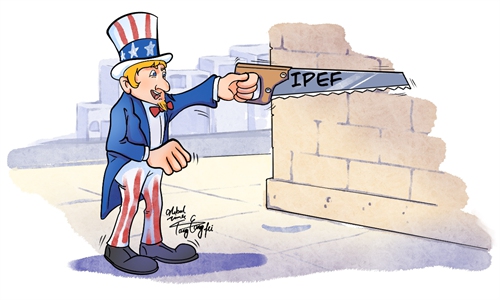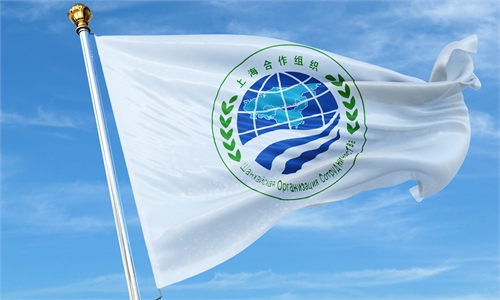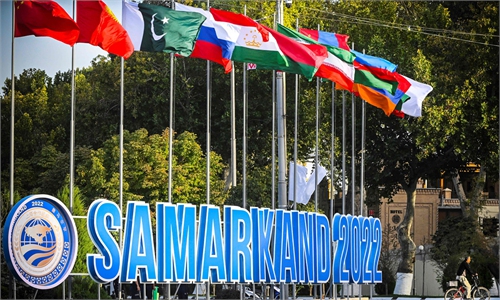
Illustration: Tang Tengfei/Global Times
Indian Prime Minister Narendra Modi's attendance at the Shanghai Cooperation Organisation (SCO) summit in Samarkand, Uzbekistan has attracted much attention and sparked a lot of speculation about India's position on various global and regional issues, as the US is stepping up efforts to lure the South Asian nation into its small clique.Just several days ago, India announced that it has decided to stay out of trade pillar of the US-led Indo-Pacific Economic Framework(IPEF), citing concerns over environment and labor issues. Against such a backdrop, Modi's activities at the SCO summit is apparently making US politicians very anxious.
Ahead of the SCO summit, US lawmakers pushed to strengthen diplomatic ties with India, while repeating the cliché narrative that China poses a "substantial threat" to the world, according to Indian media outlet Economic Times on Thursday.
Such an attempt does nothing but reflects their sour grape mindset over expanding cooperation within the SCO. The bottom line is that no matter how hard US politicians try to undermine SCO cooperation, they will not succeed. What the US is offering is simply not beneficial or feasible for regional countries, including India, which is fully aware of this, as evidenced by its decision to opt out from the IPEF's trade pillar.
In terms of economic development, India is on the right track to bolster cooperation with regional countries within the SCO framework, since it joined the organization in 2017. Now as the fifth largest economy in the world, India has even more reason to further deepen SCO cooperation to ensure long-term growth, while coping with rising global geopolitical uncertainties and economic challenges.
Since India joined the SCO five years ago, its economic and trade cooperation with Russia, China, and other SCO members has grown significantly. Russia-India trade has soared nearly 120 percent so far this year, the Kremlin announced ahead of the SCO summit. China-India bilateral trade broke the $100 billion mark last year and has maintained strong momentum this year. India's trade with Central Asian countries rose nearly doubled to reach $2.7 billion in 2019-20.
In-depth participation in economic cooperation under the SCO framework has clearly helped India's economic growth. Further deepening such mutually beneficial economic cooperation with other SCO member states is undoubtedly beneficial to future development of India's economy.
Consisting of developing nations, the SCO has a strong demand for economic development and huge development potential. As a major Asian economy, India is inseparable from the Asian supply chain and industrial chain. Strengthening economic cooperation with regional countries is necessary for India's development, especially given its goals of improving economic structure and revitalize manufacturing.
More importantly, rising "de-globalization" and "protectionism," spearheaded by an increasingly reckless Washington, provide India a compelling reason to expand cooperation with other SCO members. In recent years, the US has been frequently using trade protectionism and bullying, while ignoring the basic rules of the WTO. Almost all SCO countries have had economic and trade frictions with the US to varying degrees.
India is the only member of the SCO that has been constantly courted by Washington to join the so-called IPEF. However, evidently, as the US has not provided India with any practical benefits, New Delhi has chosen to for now stay out of the trade pillar of IPEF. This has exposed the unbridgeable differences between India and the US on some economic and trade issues, despite Washington's pressuring campaign.
In terms of global economic governance, SCO member states have proposed to continue to maintain and consolidate an open, transparent, fair, inclusive and non-discriminatory multilateral trading system with the WTO at its core, which is obviously beneficial to India's economic development.
In so many ways, the SCO mechanism is where India's future development opportunity lies. India's participation will also help the SCO to further expand cooperation in a wide range of areas. Therefore, it is hoped that New Delhi can put aside its geopolitical calculations and resist pressure from Washington and actively promote economic and trade cooperation within the SCO.
The author is a reporter with the Global Times. bizopinion@globaltimes.com.cn



